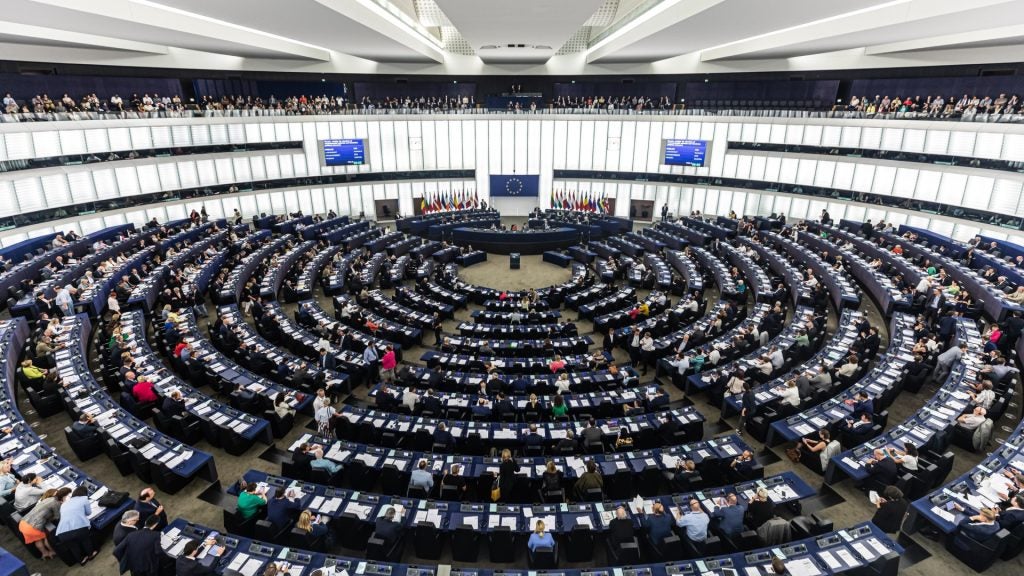
Netflix is planning a major expansion into Europe, the Middle East, and Africa. This comes as it turns away from the US to fuel its rampant user growth.
Netflix will invest $1 billion into original content made in these regions in 2018, it was reported by the Financial Times newspaper though did not respond to Verdict’s attempt to verify the story.
The streaming service did however say its 2018 investment represents double the cash it spent on creating original programming in 2017.
At the conference in Rome, Netflix shared details on ten brand new original productions made in Europe.
These include seven new drama series made in the Netherlands, France, Germany, Italy, Spain, and the UK respectively. In addition, there are two documentary series coming from France and Netflix’s first Italian original movie.
Netflix also announced updates and news about a whole host of pre-existing original series. For example, they confirmed a second series of Dark.
How well do you really know your competitors?
Access the most comprehensive Company Profiles on the market, powered by GlobalData. Save hours of research. Gain competitive edge.

Thank you!
Your download email will arrive shortly
Not ready to buy yet? Download a free sample
We are confident about the unique quality of our Company Profiles. However, we want you to make the most beneficial decision for your business, so we offer a free sample that you can download by submitting the below form
By GlobalDataWhy is Netflix expanding into Europe?
This European expansion represents a smart move for Netflix. The company confirmed that European productions are performing well with a global audience. They cite examples including Dark (Germany), Suburra (Italy), Las Chicas del Cable (Spain) and Black Mirror (UK).
In a press release, Netflix note:
“Dark, which debuted last December, generated unexpected fandom in countries such as Chile, Bangladesh and Canada, and, for every hour watched in Germany, nine hours were watched internationally.”
Still, the success of television series internationally is far from guaranteed.
Speaking to Verdict, an analyst Tom Harrington from Enders Analysis, a research service specializing in streaming services, explains:
“TV is a remarkably localised medium, if you go to any market with a reasonably-sized production sector the most popular show will be locally-produced and directed at the domestic market. If Netflix wants to continue expanding internationally it needs content that is relevant to its different markets – American content will only get it so far.”
Essentially, if Netflix wants European viewers to subscribe they need to be speaking to them in their own languages.
After engaging European subscribers with content in their languages, it can promote popular global hits like Stranger Things to them with subtitles or dubbing.
A European Union of Netflix
Still, despite the talk of bringing European content to a global audience, Netflix users in Europe will still face geo-filters.
Depending on where the Netflix account is registered (or more specifically, where the card which pays for the account is issued) only that country’s content will be available.
New rules, recently adopted by the European Union make it illegal for websites to use geo-blocking technology. They cannot display different content to people from different countries unless there is a meaningful reason for doing so. However, the rules don’t apply to “services linked to copyright-protected content or works in an intangible form.”
Unfortunately, that description includes Netflix content.
Harrington said:
In December, one proposed part was voted against, which was EU-wide licences for content (at the moment most content is licensed country by country). This would have conceivably played into Netflix and other large, Europe-wide buyers’ hands. Smaller, regional buyers would not be in the market to buy Europe-wide rights.
It would also have made it simpler for Netflix to have a European service with one library available across all countries. There is still support for this but perhaps that ship has sailed.
Major opposition came from producers (and production industry bodies) who realised that it would have made the deficit model of funding content unworkable.
But Netflix could well not even want a Europe-wide service – further to the localisation theme, there is probably some benefit in having a particular library available to a particular population base.
Roaming Netflix
On the plus side, a portability regulation ensures that subscribers to digital services, such as Netflix, can access content even when they are temporarily in a country where they are not resident. This is obviously good news for holidaymakers who would like to watch content abroad.
This might also sate Netflix’s appetite for changing the EU regulation.
John Davidson-Kelly, UK Partner at Osborne Clarke, a law firm specialising in digital and political challenges, told Verdict:
Initially the EU Commission was aiming for “accessibility” – where a digital service could be accessed from anywhere in the EU. They had to abandon this proposal because it would have devalued current business models which are based on territorial licensing. Look at Premier League auctions. They make a fortune by parcelling up the rights and selling them into different territories. You can’t suddenly just break that model because you want consumers in Romania to be able to access BT Sport. That would devalue the exclusivity of the rights.
So instead of accessibility the Commission has introduced two new Regulations – the Portability Regulation and the Geoblocking Regulation. Although these achieve different goals to accessibility, these Regulations represent the best deal for consumers that the Commission could get in the face of powerful lobbying from businesses who didn’t want their business models eroded.”
In the Portability Regulation, the Commission introduced a very neat legal fiction that’s easy to implement legally, but the practical solution is really difficult to put into place. Copyrighted content is out of scope of the Geoblocking Regulation (ie it can still be geoblocked) but there’s no appetite for getting rid of geo-blocking for audiovisual content. Again, this is more an issue for the rights holders than platforms like Netflix. There’s no appetite to change the model because it’ll devalue their rights. The platforms will have to spend money implementing it.
The portability ruling is a best of both worlds situation. It ensures Netflix subscribers can access their digital service anywhere. However, Netflix doesn’t have to disrupt a lucrative industry for the licence holders providing content.
Ultimately, it seems unlikely the EU’s latest ruling will help or hinder Netflix’s European expansion.






